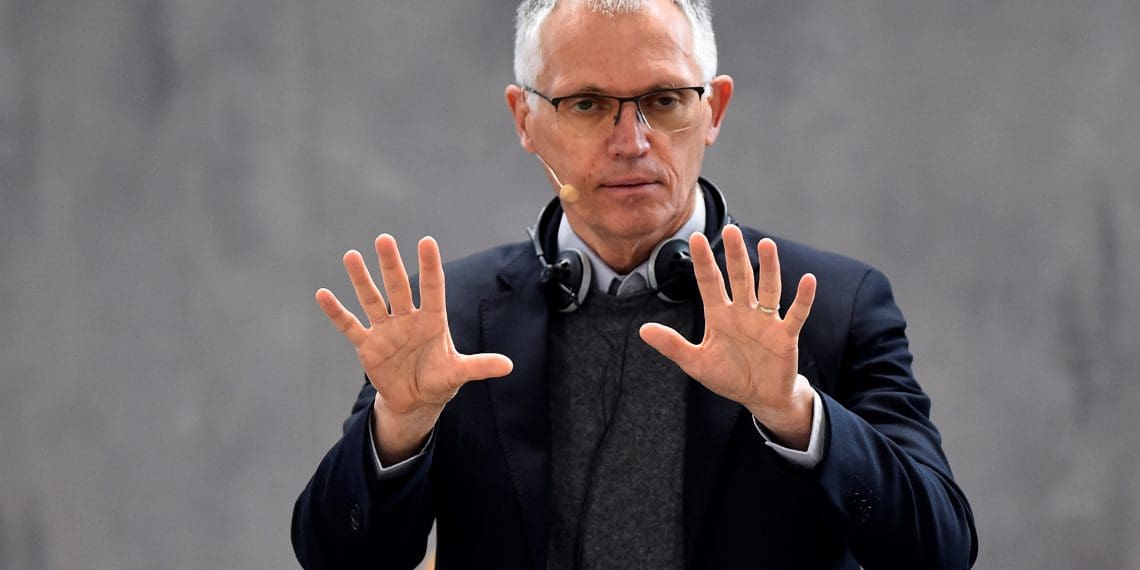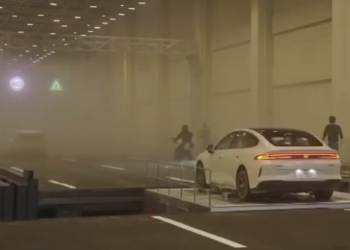Unrealistic Ambitions Lead to Ouster of Stellantis CEO
In a dramatic turn of events, Carlos Tavares, the outspoken and once-celebrated CEO of Stellantis, was ousted just a month after receiving unanimous backing from the company’s board. Tavares’ aggressive cost-cutting measures, lofty sales targets, and abrasive leadership style ultimately fractured his relationship with board members, suppliers, and unions, according to insider sources.
The decision to remove Tavares has left Stellantis—home to 14 brands including Jeep, Ram, Fiat, and Peugeot—without a successor amid growing challenges in the global automotive market.
“Something Broke in November”
The cracks in Tavares’ leadership surfaced in November, insiders say, after months of mounting tension. Once lauded for driving profitability, Tavares’ “radical” targets were increasingly seen as unrealistic and damaging.
Sources revealed his strained relationships with the board, stemming from his refusal to engage in industry lobbying over European Union emissions regulations and his insistence that Stellantis could hit 21% electric vehicle (EV) sales by 2025, up from 12% today, without incurring fines.
This position left board members and staff questioning his strategy. “Company staffers were totally lost over the ‘irrationality’ of achieving such a large EV share increase without fines,” one insider said. His hardline approach to drastically cutting costs in Europe, where operations were already “cut to the bone,” further alienated the board.
A Leadership Style That Alienated Many
Tavares was no stranger to controversy. Known for his top-down leadership style, he left little room for dissent and clashed with key players across Stellantis’ ecosystem, including:
- Suppliers: His drive to replace long-standing suppliers with cheaper alternatives caused supply chain disruptions and jeopardized production.
- Dealers: Contentious pricing strategies led to bloated inventories in the U.S. and a reputation for overpricing in both Europe and the U.S.
- Unions: His cost-cutting measures fueled tensions with labor unions, particularly in the U.S. and Europe.
- Governments: His relationships with the governments of Italy and France became strained over divergent policy priorities.
“You cannot make enemies with everybody,” one source remarked, describing how Tavares’ approach began to unravel the delicate balance required to run a sprawling global automaker.
Breaking Point: Board Confrontation
Tavares’ dismissal followed a series of heated board meetings in November. When members pressed him on his strategies, particularly regarding EV targets and cost management, Tavares reportedly responded, “You do not interfere with my job—that is not your business.”
The response further irritated board members representing major shareholders, including Exor, the Peugeot family, and the French government. His refusal to adjust controversial policies ultimately rendered his position “totally untenable.”
Profit Warnings and Market Realities
Adding to the tensions, Stellantis issued a major profit warning in September, undermining Tavares’ reputation as a master of margins. The automaker’s share price has since plummeted by 43% in 2024, driven by falling market share in the U.S. and Europe, rising competition from Chinese EV makers, and steep pricing policies that alienated customers.
Dealers and industry experts say Stellantis has “priced itself out of the market,” leaving the company vulnerable to further losses in an already competitive automotive landscape.
A Daunting To-Do List for Stellantis
Stellantis now faces the challenge of stabilizing operations without a clear successor for Tavares. Among the top priorities for the next CEO:
- Revitalize U.S. Operations: Address bloated inventories and declining market share for Jeep and Ram.
- Boost EV Transition: Meet stringent EU emissions standards and ramp up EV sales without sacrificing profitability.
- Rebuild Relationships: Repair strained ties with suppliers, unions, and governments critical to the automaker’s success.
- Counter Chinese Competition: Fend off the growing threat of Chinese EV manufacturers in Europe and North America.
The Legacy of Carlos Tavares
Carlos Tavares leaves behind a mixed legacy. As the architect of the 2021 merger between Fiat Chrysler and Peugeot, he transformed Stellantis into one of the world’s largest automakers and delivered impressive profit margins in its early years. However, his unrelenting focus on cost-cutting and contentious relationships ultimately alienated those around him, leading to his dramatic fall.
Now, as Stellantis searches for new leadership, the automaker must navigate a rapidly changing industry without the stability it once enjoyed under Tavares.










